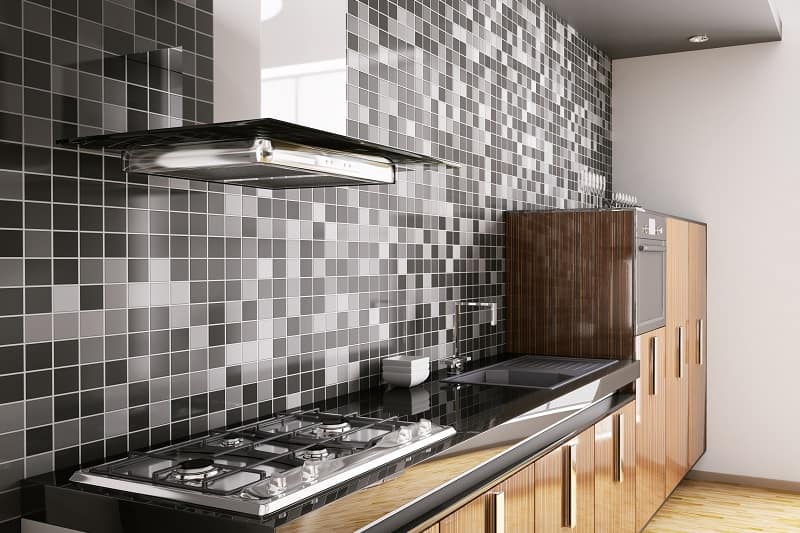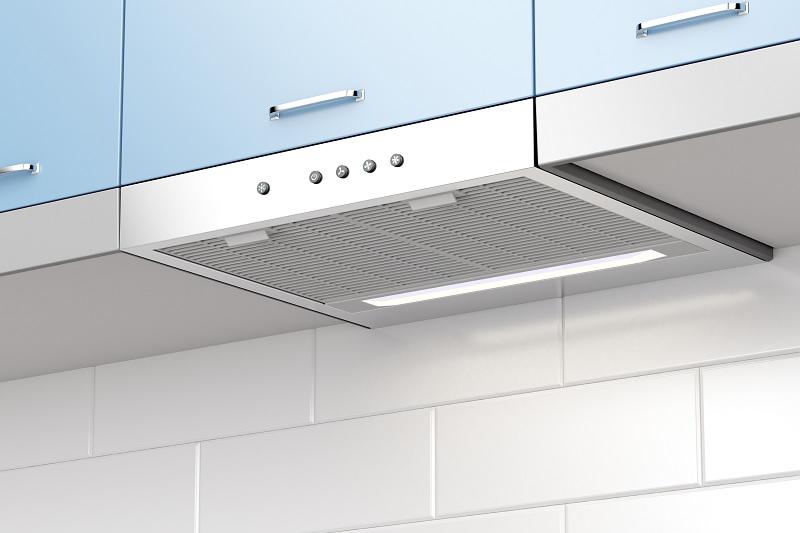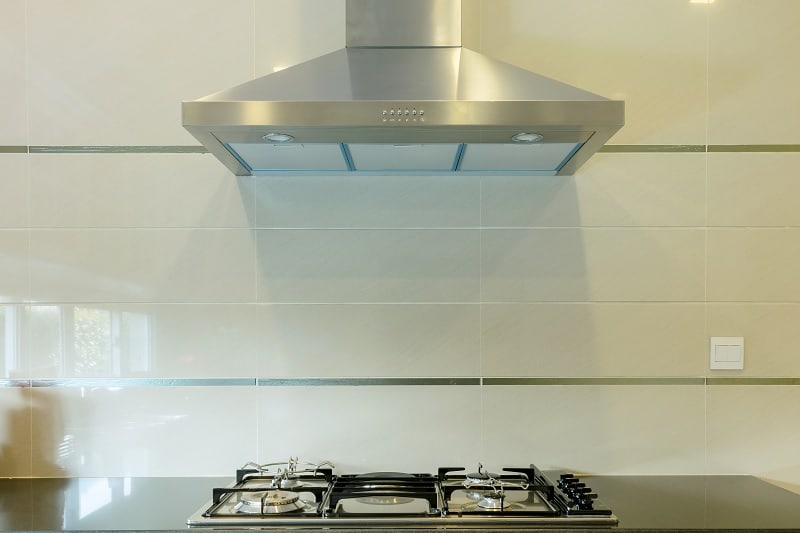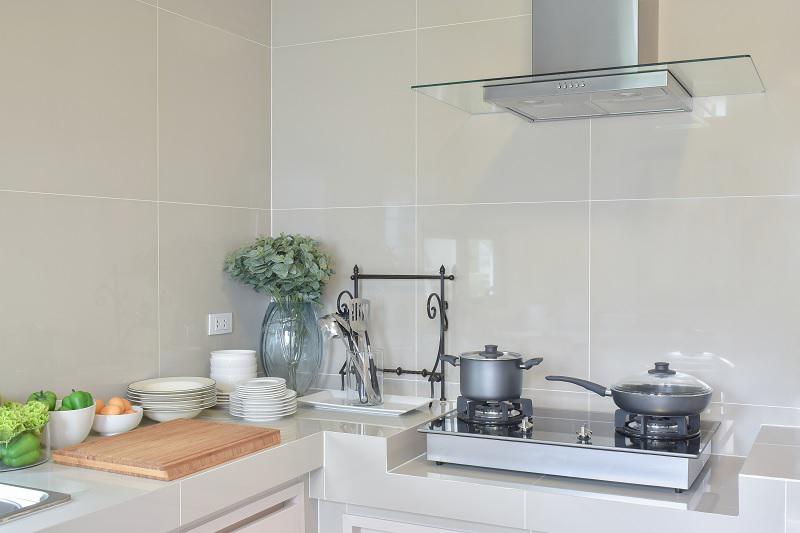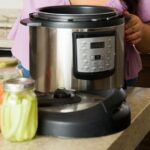There’s an ongoing argument about cooker hoods. On the one hand, some people love cooker hoods and couldn’t imagine their kitchen without one.
On the other hand, some people think cooker hoods are ugly and expensive, and wonder if they are really essential.
So, are cooker hoods necessary? Are they a legal requirement? Let’s find out all about cooker hoods and, hopefully, put this debate to rest, shall we?
What Do Cooker Hoods Do?
Cooker hoods extract steam, smoke and smells from the kitchen, helping keep the air clean and preventing damage via excessive moisture.
When you cook, you will inevitably create some form of air pollution during the process, particularly when using your hob.
Now, this isn’t a slur on your cooking at all, it is just a fact of life. As you cook your ingredients, water, steam and smoke come out of the pan.
This effect is more apparent during certain methods of cooking. For example, if you are cooking a steak and searing in all the lovely juices, this creates a lot of smoke. So, if you want to avoid making your kitchen look like the set of a Michael Bay film, you need to do something to get rid of this smoke.
Of course, smoke and water vapour aren’t the only things that cooking on your hob can produce. Oil can also come out of the pan and release grease into the air. This grease turns into Grease Lighting and gets everywhere, and the smell can linger for a long time.
If you have ever cooked fish without some form of extraction, you’ll know this well!
Plus, even if you are simply boiling the veg to go with your roast, you are releasing a lot of water vapour and steam into the air that will settle and can lead to wood rot and rust and may even lead to your kitchen looking a little nasty.
All of these cooking practises can add up to a lot of damage to your kitchen. A cooker hood can prevent your kitchen from getting damaged at all.
Basically, a cooker hood cleans the air as you cook. It lets you prevent smells and damage making your kitchen an unpleasant place to be.
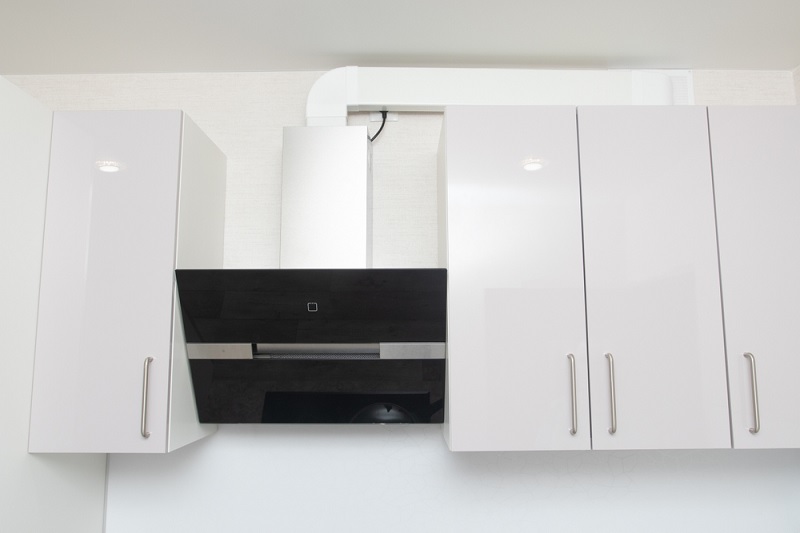
How Do Cooker Hoods Work?
Cooker hoods typically come in two main varieties. Which type of cooker hood you get will be dependent on your kitchen, where your cooker is placed within your kitchen and the style that you feel is right. Let’s take a look at these cooker hoods and find out what they do.
Extraction cooker hoods
Extraction cooker hoods remove all the smells, gases and things like that and actually take them out of your kitchen completely.
To do this, an extraction hood needs to be partnered with a suitable and fairly sizeable hole in the wall of your kitchen. Then, this type of cooker hood can push all the unwanted stuff out into the world, and your kitchen will remain damage and smell-free.
Extraction cooker hoods are regarded as the easiest to maintain, but they are a bit trickier to install. Despite what you might expect, the hole in your kitchen wall really doesn’t result in much energy and heat loss.
Recirculating cooker hoods
Unlike extraction cooker hoods, recirculating cooker hoods work by sucking the air from your kitchen through filters, cleaning it and then pushing it back into the kitchen.
They are a bit more heat-efficient than extraction hoods (as you don’t have to cut a hole in your kitchen wall), but there is a bit more maintenance to do with these cooker hoods.
Recirculating hoods can filter out smoke from your steak, but they don’t have the capacity to filter out steam as the filters inside most are not fit for that.
Are Cooker Hoods a Legal Requirement?
While cooker hoods are not a legal requirement, having some way of ventilating your kitchen usually is.
In new homes, extract ventilation needs to be available in areas of increased humidity or pollution, such as over an oven—see the document here.
But what about older homes? Well, let’s try to explain what the legal requirements are as simply as possible:
- If you’re refurbishing a kitchen that doesn’t already have a cooker hood, then you do not need to fit one. Chances are the kitchen is well ventilated already.
- If you’re refurbishing a kitchen that does have some form of kitchen extraction already, you’ll need to replace this either with a cooker hood, the same type of extraction already present or something similar with a similar or higher rated extraction method.
- If you’re building a new home or adding an extension, you must have extraction to the outside of the home. The extraction rating depends on where the extractor is situated in the room.
If you’re now really confused, you can check your local codes and specs. You can also ask local builders, cooker fitters and lovely folk like that for their help in this ever-confusing world of cooker hoods and extraction!
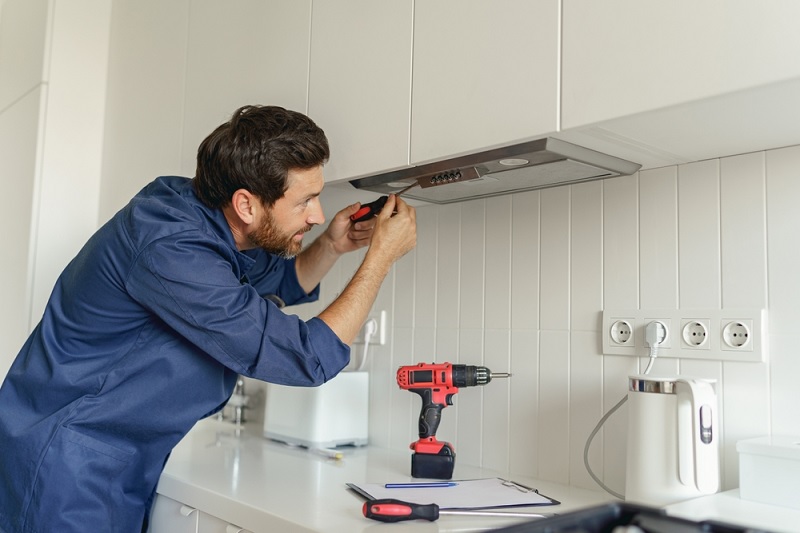
Are Cooker Hoods Necessary?
Some people feel that cooker hoods are not needed in a kitchen. Of course, this is as much personal opinion on cooker hoods than anything else.
I can say that as someone who has moved from a home with a cooker hood to a cooker-hood-less home, I am on the fence. The cooker hood in my old house did a fantastic job at keeping smells at bay and getting rid of grease. However, my new home has lots of extraction points dotted around the whole house, meaning that a cooker hood would be pretty redundant.
Having said that, a cooker hood directly over your cooker is the most effective way of removing smells and grease from your kitchen. The cooker hood will tackle these problems for you and keep your kitchen looking and smelling nice.
Plus, a lot of hoods look modern and bring a really cool design aesthetic to any kitchen. And they have a handy light too!
I hope this look at cooker hoods, their uses and my take on cooker hoods and kitchen extraction, in general, has been helpful.

Chef’s Pick is your guide to the best kitchen equipment and appliances in the UK.
We help you understand the confusing world of cookers, ovens and cookware so you can get the most out of your kitchen.

